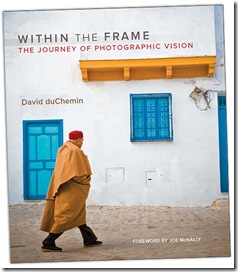It’s been longer than I’d like between posts. I’ve been busy preparing images for various contests and magazines. Some of my least favorite work after post-processing, but I’m finding out just how important it is. You really learn to critically look at what you produce. It can be a little discouraging when you face the reality and see that a lot of the stuff you thought worked, doesn’t, but it’s an advantage to learn how to discern this yourself. I’m still learning and think/hope I’m steadily getting better.
There are people who aren’t crazy about photo contests, some have their egos bruised when they don’t win and others think the idea is stupid in general. I have mixed feelings on the matter and I do think that some contest judges are on crack while making their decisions. However, I try to see photo contests for what they are – opportunities to get your work seen by a large number of people and chances to win – money, prizes, recognition. I think I have also understood that these things are extremely subjective, nevertheless the winning images that you see in “big” contests are more often than not inspiring, and that is never a bad thing. If the quality of your work and the timing complement each other, you’ll win, if that’s not the case – you’ll at least learn, if not from other people’s images, then from having to critically look at your own work and seeing what your weaknesses are.
While I’m on the topic of critically looking at images I’d like to mention a site with which I have been involved lately. I know that many readers have probably found me on this very site, but for those who didn’t, it is called Onexposure. I think the whole idea behind this project is quite brilliant. For those more serious about their photography it is a great alternative to Flickr.
It works like this: You have a weekly limit of image uploads and the images you upload are either published on the website or rejected. After you upload, knowledgeable photographers/enthusiasts look at your work, if it really sucks a “screener” instantly rejects it, if it really rocks it’s instantly published. More often than not the decision is not instant and the site members (including you, once you register) have to vote on what should be published and what shouldn’t. A decision not to publish is usually accompanied by a reason/s e.g. – lack of impact, poor composition etc. An important detail is the fact that the whole process is anonymous. The voters don’t know whose image they’re seeing and the photographer doesn’t know who voted for or against. In my opinion this is great because it prevents rivalry, popularity contests and the ridiculous “mutual masturbation” that you sometimes see on Flickr – “Receive a star and give 5 stars to 5 other photos”. On Onexposure if your image is rubbish it simply doesn’t make it to the front page, when it does the comments are for most part of the positive and the congratulatory type and people can “favorite” your photo . In some way this is a page out of Flickr’s book, but on average, the crowd on OneExposure is much more photographically intelligent and with much less trash to look at, you’re really only presented with very decent to absolutely awesome work.
Anyway that’s enough about Onexposure, nothing better than seeing it for yourself.
Before I sign off, I’d like to plug the book of an internet friend David duChemin – a brilliant fellow and a very fine photographer. His blog is full of wisdom - inspiration, the business side of photography, practical gear related stuff, it’s all there and anyone interested in photography beyond snap shots must check it out. Needless to say, an author of such a fine blog is very capable of producing an invaluable book for all those who aspire to better themselves as photographers and it seems like David has done just that. The book is still about a month away from being available, but it’s looking good from the sample PDF provided on David’s blog. I urge you all to check it out.

